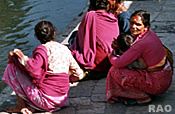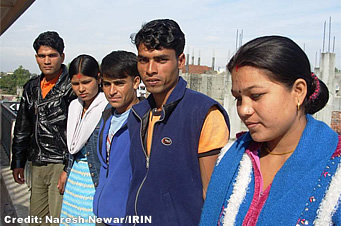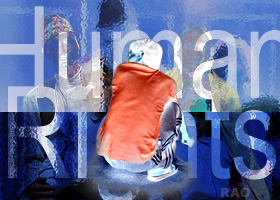 |
Nepal SOCIAL LIFE |
 |
Nepal Information |
|
|
 |
| Low
caste communities still suffering discrimination
|
 |
NEPALGANJ,
5 Jan 2007 (IRIN)
 |
| Low caste Dalit communities are still neglected and discriminated against
in Nepalese society
Nepal's
impoverished low caste 'Dalit' community continue to be discriminated against
almost 20 years after the caste system was banned, human rights activists
in Nepal's southwestern city of Nepalganj have complained. |
|
"We
still have to live with the hard reality of being discriminated [against]
in every aspect of our lives," said Dalit school teacher, Hari Bahadur
Biswokarma, in Nepalganj, 600 km west of the capital Kathmandu.
Biswokarma
added that the situation was much worse in the remote western areas of
Nepal, which remain among the least developed areas in the country with
a per capita income of less than US $1 a day.
The
Dalits have suffered from caste discrimination ever since the former Nepalese
rulers, the Mallas, introduced the system in the 13th century. It was only
in 1990, following the restoration of democracy, that the new constitution
declared the practice of caste discrimination a crime.
"But
even today, the situation has barely changed as discrimination is rife
in both social and economic aspects," said Dalit activist, Parsuram Nepali,
from the local rights NGO, Neglected Community Awareness, Nepal.
He
added that due to discrimination, the Dalit families are excluded from
most development and economic activities, children are often deprived of
education, and women have to work under exploitative conditions in the
cities in order to make a living.
According
to the Dalit NGO Federation (DNF), around 80 percent of the five million-strong
Dalit population lives below the poverty line. DNF explained that the literacy
rate is barely 10 percent, with only 3.2 percent of women literate, and
most Dalit children suffering malnutrition.
 |
| Until
recently, the former Maoist rebels had been supporting the Dalits while
engaged in a decade of conflict with the Nepalese government. However,
following a peace agreement between the two parties in November, the Maoists
have been preoccupied with their own political issues, Dalit activists
have complained. |
|
"The
Maoists had proved themselves committed to end discrimination by punishing
especially the high caste landlords who had been exploiting the low caste
farmers," said activist Bhim Nepali from the NGO, Dalit Sewa Sangh.
"The
only way to end the discrimination is by empowering and educating more
Dalits, but the government has to be seriously committed, otherwise another
civil war will start in the country if the neglect continues," claimed
activist Ram Singh Karki, who explained that one cause of the armed conflict
over the past decade was related to the social exclusion of the low castes.
He warned that the Dalits may be forced to take up arms if their wellbeing
is constantly ignored by the state.
Source: IRIN 2007
Copyright
Ⓒ UN Office for the Coordination of Humanitarian Affairs 2007
[
This report does not necessarily reflect the views of the United Nations]
Integrated
Regional Information Networks (IRIN), part of the UN Office for the Coordination
of Humanitarian Affairs (OCHA). |
|
Information
|
 |
|
Links
|
 |
 |
 |
Externe
Links |
|




